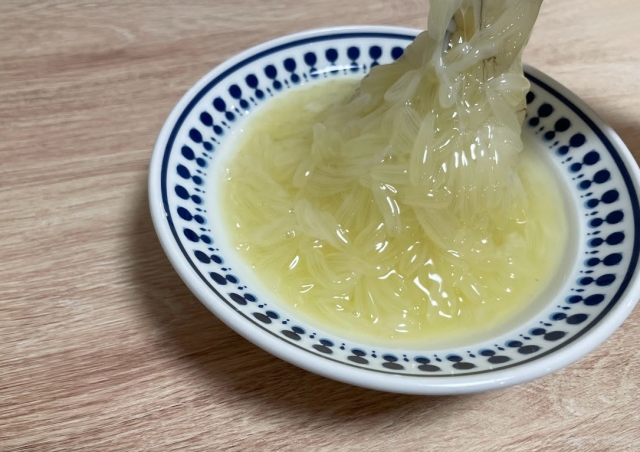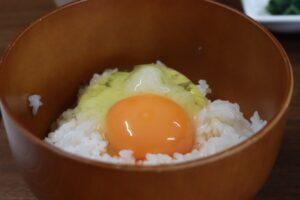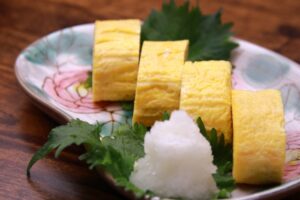Have you ever heard of octopus eggs being served as a delicacy?
In Japan, certain regions have embraced this unique culinary tradition, offering a taste experience that’s as intriguing as it is flavorful.
In this article, we’ll dive into the mystery of octopus eggs—what they are, how they’re prepared, and why they’re cherished in parts of Japan.
Whether you’re a foodie with an adventurous palate or simply curious about global culinary practices, you’ll find everything you need to know about this fascinating Japanese delicacy.
So, let’s explore the world of octopus eggs together, and discover why they’re considered a hidden gem in Japanese cuisine.
Exploring Japan’s Unique Culinary Practices: The Mystery of Octopus Eggs
Japan is a country renowned for its unique and sometimes surprising culinary traditions. Among these, the practice of eating octopus eggs might stand out as one of the most curious. But what exactly are octopus eggs, and why are they consumed in certain regions of Japan? In this article, we’ll dive deep into this fascinating topic, exploring the history, preparation, and taste of octopus eggs, and offering insights that will satisfy your curiosity.
① What Exactly Are Octopus Eggs? Understanding the Basics
Octopus eggs are exactly what they sound like—eggs produced by female octopuses. These eggs are tiny, translucent, and resemble small grains of rice. When gathered together, they form clusters that can look almost like delicate underwater pearls. While the idea of eating eggs from an octopus might seem strange to some, in Japan, they are considered a delicacy in certain regions. The eggs are harvested carefully, usually from female octopuses caught during the breeding season, ensuring they are fresh and flavorful.
② Why Do Some Japanese Regions Eat Octopus Eggs? Cultural and Historical Context
The consumption of octopus eggs in Japan is deeply rooted in cultural and historical traditions. In some coastal regions, where fishing is a way of life, the entire octopus—including its eggs—is utilized as a source of food. This practice dates back centuries, originating from a time when communities relied heavily on local marine life for sustenance. Over time, the consumption of octopus eggs became not just a necessity but a culinary tradition passed down through generations. Today, eating octopus eggs is a way to honor and preserve these age-old practices, connecting people to their heritage.
③ How Are Octopus Eggs Harvested? A Look Into the Process
Harvesting octopus eggs is a delicate process that requires skill and precision. Fishermen typically catch octopuses during the breeding season when the eggs are most abundant. The eggs are carefully removed from the female octopus, usually by hand, to ensure they remain intact. This meticulous process is crucial because the eggs are very small and fragile. After harvesting, the eggs are often cleaned and prepared for consumption in various traditional dishes. The careful handling of these eggs reflects the respect Japanese fishermen have for the ocean and its offerings.
④ How Are Octopus Eggs Prepared? Traditional Japanese Recipes Explained
Once harvested, octopus eggs can be prepared in several ways, depending on the region and the dish being made. One common method is to marinate the eggs in soy sauce and sake, allowing them to absorb the flavors before being served as part of a sushi platter. Another traditional preparation involves simmering the eggs in a broth with ingredients like seaweed and miso, creating a rich and savory dish. Some chefs may also incorporate octopus eggs into salads or as a garnish for various seafood dishes, adding a unique texture and flavor. The versatility of octopus eggs in Japanese cuisine is a testament to the creativity and resourcefulness of the country’s chefs.
⑤ What Do Octopus Eggs Taste Like? A Sensory Experience
For those who have never tried octopus eggs, the taste can be a unique experience. The eggs themselves have a subtle, slightly briny flavor that is often described as oceanic but not overpowering. The texture is what really sets them apart—they are firm yet tender, with a slight pop when bitten into. This combination of taste and texture makes octopus eggs a sought-after delicacy for those who enjoy seafood. When prepared well, the eggs can add an intriguing layer of flavor to a dish, enhancing the overall dining experience. It’s a taste that is deeply connected to the sea, offering a glimpse into the marine life of Japan’s coastal regions.
⑥ Which Regions in Japan Consume Octopus Eggs? A Regional Breakdown
While octopus eggs can be found in various parts of Japan, they are most commonly eaten in coastal regions such as Hokkaido, the Kanto area, and parts of the Kansai region. Each of these areas has its own unique way of preparing and enjoying octopus eggs. In Hokkaido, for instance, the eggs might be served as part of a seafood donburi (rice bowl), while in Kansai, they might be incorporated into a hot pot dish. The regional variations in how octopus eggs are consumed reflect the diverse culinary landscape of Japan and offer a glimpse into how local traditions influence food practices.
⑦ Is Eating Octopus Eggs Safe? Health and Nutritional Information
When it comes to safety, octopus eggs are generally considered safe to eat when prepared properly. They are rich in protein and contain essential nutrients like omega-3 fatty acids, which are beneficial for heart health. However, as with all seafood, it is important to ensure that the eggs are sourced from clean, unpolluted waters to avoid the risk of contamination. In Japan, seafood is subject to strict regulations, so octopus eggs purchased from reputable sources are typically safe for consumption. For those with seafood allergies, it’s always wise to consult with a healthcare provider before trying new foods like octopus eggs.
⑧ How Do Octopus Eggs Fit Into the Larger Japanese Diet? Comparing to Other Seafood Delicacies
Octopus eggs are just one of many seafood delicacies in Japan, a country where marine life plays a central role in the diet. Like other seafood, octopus eggs are valued for their taste, nutritional benefits, and cultural significance. They are often compared to other unique offerings like fish roe (ikura) or sea urchin (uni), both of which share a similar texture and flavor profile. However, octopus eggs stand out due to their rarity and the skill required to harvest and prepare them. This makes them a special treat, enjoyed on occasions when something truly unique is desired.
⑨ Where Can You Try Octopus Eggs? Tips for Culinary Adventurers Visiting Japan
If you’re intrigued and eager to try octopus eggs for yourself, there are several places in Japan where you can experience this delicacy. High-end sushi restaurants in Tokyo and Osaka often feature octopus eggs on their menu, particularly during the breeding season. Additionally, coastal towns in Hokkaido or the Kanto region might offer the eggs as part of a seafood platter or local specialty dish. For the best experience, it’s recommended to visit during the autumn months, when the eggs are freshest. As with all culinary adventures, it’s always a good idea to ask local chefs or guides for their recommendations on where to find the highest quality octopus eggs.
⑩ What Do Locals Think About Eating Octopus Eggs? Perspectives from Japanese People
The practice of eating octopus eggs is met with mixed feelings among Japanese people. For some, it’s a cherished tradition that connects them to their regional heritage and the sea. They view octopus eggs as a delicacy, a symbol of the ocean’s bounty, and a reminder of the importance of sustainable fishing practices. Others, particularly younger generations, might see the consumption of octopus eggs as unusual or old-fashioned, opting instead for more modern or internationally influenced dishes. Regardless of personal views, the presence of octopus eggs in Japanese cuisine highlights the country’s rich and diverse food culture.
⑪ Octopus Eggs in Japanese Media and Pop Culture: How This Unique Food is Portrayed
Interestingly, octopus eggs have also made appearances in Japanese media and pop culture. They are sometimes featured in cooking shows, where chefs demonstrate how to prepare them in traditional and contemporary dishes. Additionally, octopus eggs might be mentioned in travel programs or documentaries that explore Japan’s culinary traditions. In pop culture, they are occasionally referenced in manga or anime that focus on food, adding an element of intrigue or exoticism to the story. These portrayals help to keep the tradition of eating octopus eggs alive, even as Japan’s food culture continues to evolve.
⑫ Can You Find Octopus Eggs Outside Japan? Global Availability and Culinary Trends
For those who can’t make it to Japan, the question remains—can you find octopus eggs outside of Japan? The answer is yes, but with some caveats. Octopus eggs are not as widely available in other countries, and when they are, they are often considered a gourmet item. Some high-end seafood markets or specialty stores in cities with large Japanese communities might carry them. Additionally, some adventurous chefs around the world have started experimenting with octopus eggs in fusion dishes, blending Japanese traditions with local flavors. However, due to their rarity, octopus eggs are still largely associated with Japan, making them a unique and sought-after delicacy for food enthusiasts.




comment